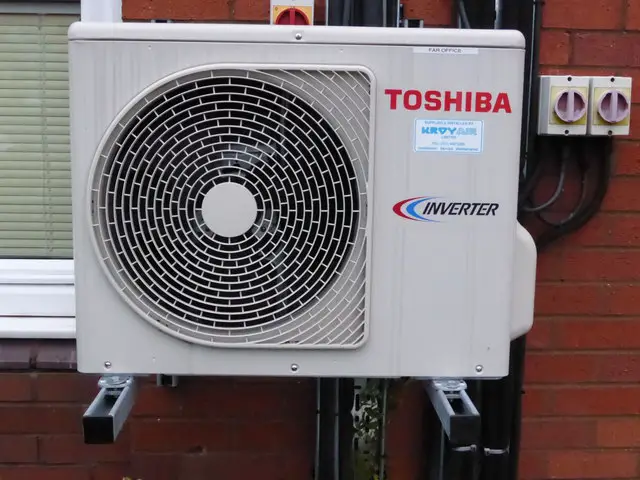Is your AC compressor loud after power outage? We’ll guide you on how to resolve this problem in this article.

Table of Contents
Steps to Resolve the ‘AC Compressor Loud After Power Outage’ Problem
If you’ve identified that your AC compressor is making unusual noises after a power outage, it’s crucial to act promptly. Here are detailed steps to guide you:
Reset the Circuit Breaker: The circuit breaker is a safety mechanism that prevents electrical overloads in your home. During power surges, it can trip to protect your appliances. Before attempting any other steps, ensure the breaker for your AC unit is reset. To do this, locate your home’s electrical panel, find the switch labeled for the AC, and ensure it’s in the “on” position.
Check for Damages: Storms or other natural disasters often cause power outages. Once it’s safe to go outside, inspect your external AC unit. Check for visible damages such as bent or broken parts, loose connections, or any foreign objects that may have gotten lodged in the unit. If you notice significant damage, avoid turning on the system and consult a technician.
Allow the AC to Rest: To balance internal pressures and let the system stabilize, it’s recommended to wait for a short period after a power outage before turning your AC back on. This 15-30 minute interval can make a significant difference in preventing further issues.
Seek Professional Help: If after the above steps the compressor still emits strange sounds, it’s best to consult with an HVAC technician. They possess the tools and expertise to diagnose and rectify internal issues that may not be apparent to the average homeowner.
Why Power Outages Affect the AC Compressor
Power outages, for many homeowners, are mere inconveniences that disrupt everyday activities. However, for appliances and electrical systems, these outages can have more profound implications.
The AC compressor’s primary function is to circulate the refrigerant necessary for heat exchange through the coils of the indoor and outdoor units. This process requires a consistent flow of electricity to maintain the pressure and temperature of the refrigerant at optimal levels. When there’s a sudden break in this electrical flow, such as during a power outage, several things can happen:
Electrical Surges: Often, when power is restored after an outage, there’s a sudden surge of electricity. This abrupt inflow can strain the compressor’s motor, potentially causing it to work harder, leading to louder operational noises, or even causing damage.
Pressure Imbalance: The compressor maintains a specific pressure level inside the AC system. A sudden power outage can create an imbalance, and if the system is restarted without stabilization, this can result in unusual noises.
Stress on Components: Instantly stopping and then restarting places undue stress on the compressor’s components. Over time, this can wear out parts more quickly and may lead to failures.
Check out these other articles…
AC Compressor On and Off Frequently: 4 Causes & Sure Fixes
AC Compressor on Car Short Cycling: 4 Proven Solutions
AC Compressor On and Off Cycling: 3 Easy Solutions
What to Do After Replacing AC Compressor: Easy 411 Guide
AC Compressor Hissing After Shut Off: 3 Causes & Solutions
Preventive Measures for the Future
While it’s essential to address issues as they arise, being proactive can save you from potential hassles in the future.
Surge Protector: A surge protector for your AC system is more than just a good-to-have—it’s a safeguard against electrical inconsistencies. By regulating the electricity flow to your AC, it can prevent the damaging effects of sudden surges, ensuring the longevity of your compressor and other components.
You can get this BSEED Surge Protector from Amazon.
Regular Maintenance: Like any other machine, your AC system benefits significantly from regular check-ups. Professional maintenance at least once a year allows technicians to catch and rectify potential issues before they escalate, ensuring smooth and efficient operation. This includes checking refrigerant levels, ensuring electrical connections are tight, lubricating moving parts, and cleaning coils and filters.
Invest in a Delay Timer: A delay timer can be a great addition to your AC unit. It ensures that after a power outage, there’s a set delay before the AC system restarts. This waiting period can prevent many of the issues caused by instant restarts after power interruptions.